Integrated Pest Management (IPM)
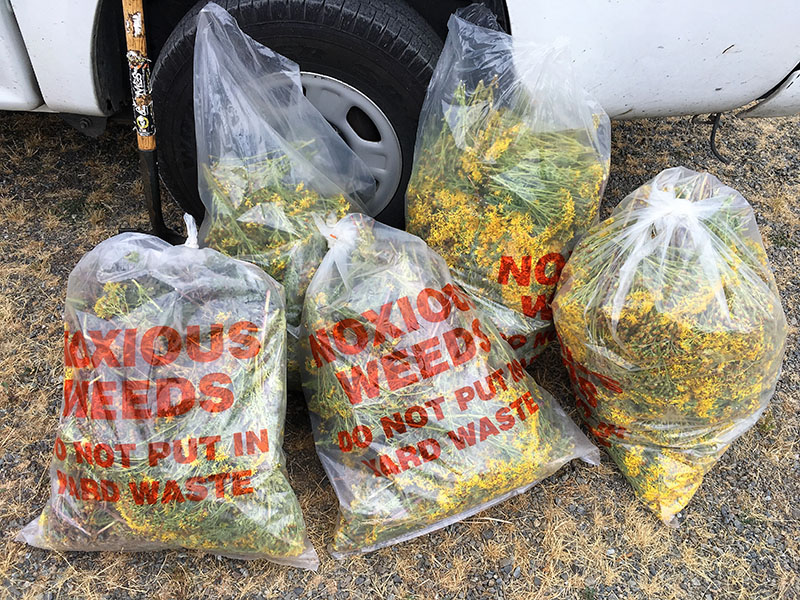
The King County Noxious Weed Control Board is concerned about protecting health and the environment, working to preserve wildlife habitat, native plant species, livestock on agricultural lands, urban and recreational acreage, and all other lands in King County. The Board recognizes that noxious weeds pose environmental and public health risks. It has applied an Integrated Pest Management (IPM) approach since the creation of the Noxious Weed Control Program in 1996 to fulfill the requirements of the Washington State Noxious Weed Law, RCW 17.10.
Integrated Pest Management, as defined by RCW 17.15, is a coordinated decision-making and action process that uses the most appropriate pest control methods and strategy in an environmentally and economically sound manner to meet programmatic pest control objectives. King County programs like the Noxious Weed Control Program follow the King County facility Integrated Pest Management (IPM) policy.
The elements of the King County Noxious Weed Control Board's IPM plan include:
- Preventing noxious weed problems
- Monitoring for the presence of noxious weeds and weed damage
- Treating noxious weed problems to reduce populations using strategies that may include biological, cultural, mechanical, and chemical control methods - always considering human health, ecological impact, feasibility, and cost-effectiveness
- Minimizing the use of chemical pesticides by offering information on alternative control methods and educating property owners who choose to use chemical controls on their correct use
- Evaluating the effects and efficacy of noxious weed control treatments
The primary emphasis of the King County Noxious Weed Control Program is on prevention and education. Landowners, by state law, are responsible for controlling noxious weeds on their properties. The Board does not require landowners to use herbicides. Landowners are given information about a variety of weed control options and are encouraged to give full consideration to all control methods prior to using herbicides.
In order to provide landowners with accurate information, Noxious Weed Control Program staff are required by the Board to obtain a Washington State Pesticide consultant's license, be knowledgeable about the laws and safety requirements for pesticide use, and to maintain their licenses through continuing education. Staff may engage in manual and biological weed control methods. Infrequently, in cases of enforcement, a control contractor may apply herbicides after full consideration of other weed control methods. Landowners are given an option to request non-chemical control in enforcement cases.
Herbicides discussed with landowners who choose to use them, and those used in enforcement cases, must be approved by the WSDA for specific applications. No herbicides are recommended that have been determined to be carcinogenic, developmental toxins, mutagenic, or causing reproductive effects by the U.S Environmental Protection Agency, or other reliable sources or studies. Herbicides used for noxious weed control will be of low acute toxicity and biodegradable.
A hazard assessment of the herbicides recommended for use by the King County Noxious Weed Control Program was prepared by an Environmental Toxicology Specialist from Washington State University at the request of the Utilities and Natural Resources Committee of the Metropolitan King County Council.
For more information about weed control recommendations for specific noxious weeds, follow this link to download Best Management Practices (BMP's).
Integrated pest management photos
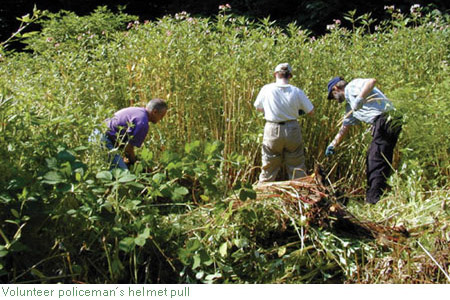
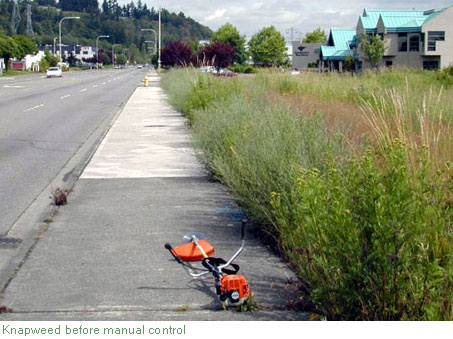
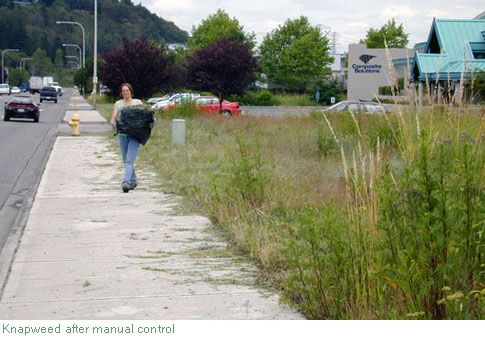
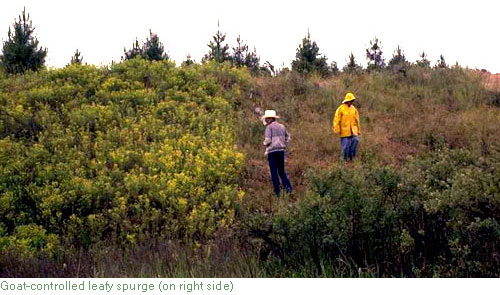
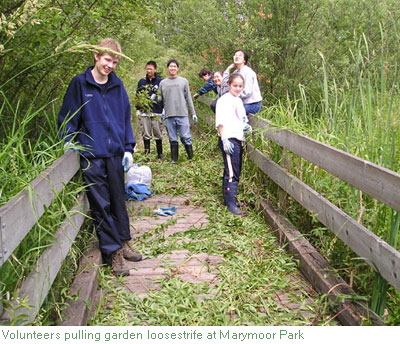
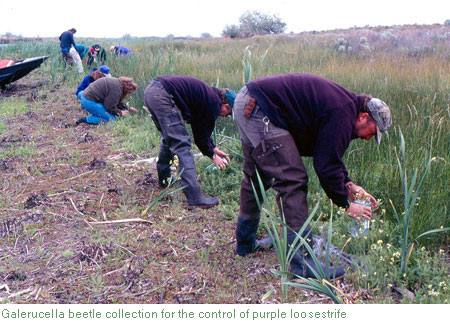
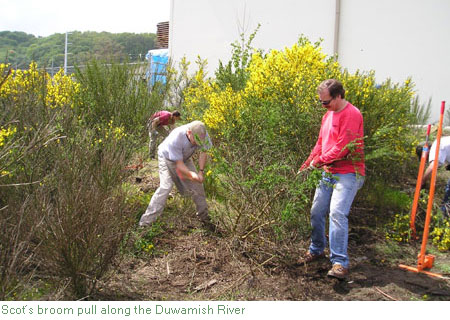
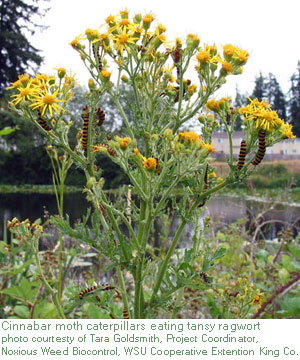
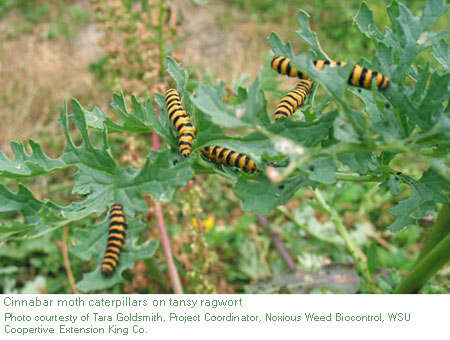
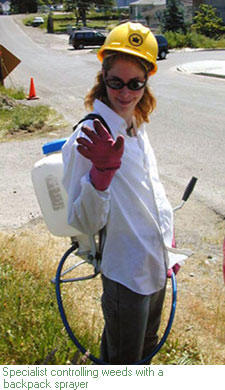
Related information
Related agencies
Program offices are located at 201 S. Jackson St., Suite 600, Seattle, WA 98104. To contact staff, see the Noxious Weed Control Program Directory, send an email, or call 206-477-WEED (206-477-9333).

 Translate
Translate